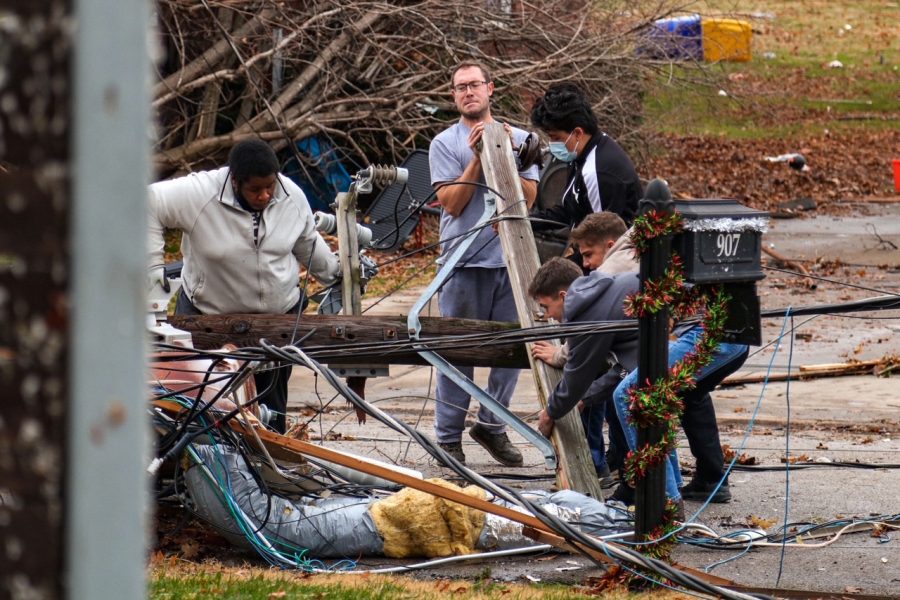WKU, University of Oklahoma working together in tornado research effort
A group of community members work together to remove debris after tornadoes and severe weather swept through Bowling Green, KY on Dec. 11.
March 30, 2022
The WKU Department of Meteorology is facilitating a research effort with the University of Oklahoma to speak with local survivors of Bowling Green’s December 2021 tornadoes to better understand the event’s structural and psychological effects.
Daphne LaDue, senior research scientist at the Center for Analysis and Prediction of Storms, will meet with anyone from the WKU community who wishes to share what they experienced. Students are encouraged to participate.
“I’m hoping to talk to students, whether they were directly impacted by the tornado or not, because they were impacted emotionally and perhaps that might change how they’re thinking about their schooling and their career,” LaDue Said. “I’m interested in seeing how the experience impacts them in their coursework and career thinking and what they did that night, because they might have ended up being sort of an information person for their friends and family.”
LaDue and her research team are hoping to glean more information about people’s homes in order to find better ways to build against future disasters. Collecting testimonies from people who were inside their houses during the storm is important because it can directly assist architects and engineers.
“We are talking to direct tornado survivors and linking the person’s experience in the home with what happened to the home,” LaDue said. “For a couple of decades now, engineers have gone in to look at tornado damage after the tornado has gone through. They have done forensic analyses to try to glean what happened in the order of damage, and things like that.”
Pairing human and structural experience is a rare opportunity, as residents know more about their home’s history and condition than anyone else.
“That has not very often been paired with the experience of the people inside who might have insights into what happened in what order, or the condition of the home, or other kinds of things,” LaDue said. “That’s that study where we’re pairing those pieces together.”
Anyone who wishes to share their testimony is encouraged to contact LaDue and her team by email at [email protected] or by phone at (405) 246-8281. In-person or phone meetings will take place on March 31 or April 1.
Content Editor Jake Moore can be reached at [email protected]. Follow him on Twitter @Charles_JMoore.
























